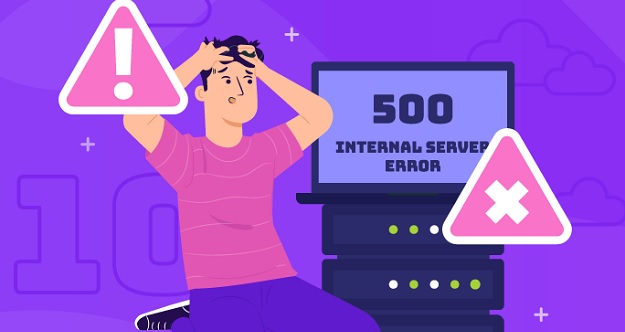Starting a new website and being able to launch it on the web hosting platform of your choice can be quite thrilling, but it does come with its fair share of problems and obstacles. When it comes to hosting your company’s website or even your personal blog/website, you are going to come across several web hosting providers on the internet, both paid and non-paid.
What’s important to understand is that your selection of the ideal hosting provider will ensure the success of your website, and your brand overall. In this article, we will take a look at the top 10 most common hosting mistakes to avoid if you’re a new website owner.
What are the Top 10 Most Common Hosting Mistakes to avoid if you’re a new Website owner?
As a new website owner, it is quite possible that you select the web hosting provider of your choice without hovering over the various features and services offered by them. This includes the essential customer security and support services, enough storage space and bandwidth for your website to work smoothly, the uptime and load time speeds, the prices and plans, and so on.
Here is a list of the top 10 most common hosting mistakes that a new website owner should avoid while selecting the web hosting service of their choice.
Not doing Enough Research.
The biggest and most common hosting mistake that new website owners make is not doing ample amounts of research regarding the website hosting service they’d be opting for.
Selecting a web hosting service hastily and without thorough research can lead to a multitude of issues in the long run. So, here’s what you should do as a beginner in this website-building and launching arena.
Start by reading reviews from other website owners who have had experience working with several website hosting platforms, and also be wary of hosting services that have numerous complaints and consistent negative feedback.
Compare the various features being offered to you by different web hosting providers, and determine which ones are crucial for your website, such as storage space, bandwidth, customer support, scalability, and so on.
Understand the actual needs of your website first, and then opt for the hosting service that caters to those needs. For instance, the needs of a large e-commerce website won’t be the same as the needs of a compact personal blog. Realize that different websites have different hosting needs.
Finally, check for the uptime of every hosting provider. You should aim for a provider with an uptime guarantee of at least 99.9%. Whenever your website is down or inactive, you can incur severe income and visitor loss.
Choosing the Cheapest Web Hosting service Possible

When the need of the hour is to choose a web hosting service, the majority of new website owners tend to opt for the one that’s cheap as they want to keep their initial costs low.
However, opting for the cheapest website hosting provider can prove to be a crucial mistake in the long run. This is so because free or extremely cheap web hosting services provide limited features such as restricted bandwidth and storage space and reduced performance. Moreover, the low-cost hosts may lead to a greater downtime on your website, thereby making it inaccessible to visitors.
Lastly, the budget hosting providers don’t really offer the level of customer support that’s optimum. Whenever problems arise, having a reliable support team can make a world of difference.
Avoiding Uptime Guarantees
Uptime refers to the amount of time your website stays available and accessible to every visitor. The uptime percentage guarantee of a web hosting provider represents the percentage of time your website is going to be up and running without any interruptions or hindrances.
When you ignore this important factor, it can lead to several problems like a negative impact on your SEO, loss of potential visitors to your website, and an overall reduction in revenue.
Ignoring Scalability
Scalability is all about the ability of a given web hosting service to handle the growth of your website.
As your website develops, and attracts more visitors besides adding a larger number of content and features, it becomes essential to have a hosting setup that can adjust and adapt accordingly.
As a new website owner, when you ignore scalability, it can lead to slowdowns and website crashes, insufficient usage of different resources, and restricted features and services like limited disk space and bandwidth to work with.
Not Considering Customer support.
An efficient customer support team plays a pivotal role in the overall hosting experience, especially whenever there are technical difficulties, inquiries, and unforeseen situations.
As a new website owner, if you don’t prioritise customer support, it can lead to problems like delayed issue resolution, various security concerns and data breaches, and a lack of necessary guidance to be able to host your website effectively.
Not Focusing on the Provided Fecurity Measures.
The security of your website should be of paramount concern to you, no matter whether you’re new in this sector or an experienced individual.
When you fail to prioritise the mandatory security concerns, it can inevitably expose your website to several risks and vulnerabilities like potential data breaches, malware attacks, hackers, your website’s SEO ranking and reputation being hindered, and so on.
Underestimating Speed and Performance
Websites that load fast are more likely to engage visitors and capture their attention than slow-loading ones.
As a new website owner, when you overlook the speed and performance of your selected web hosting service, you run the risks of high bounce rates, a negative impact on your SEO, and an imminent user frustration, thereby hampering your reputation and trust.
Slow loading and poor performing websites are synonymous to visitor frustration, and as a website owner, you should keep this in mind while choosing your ideal web hosting service.
Overlooking regular updates
Regular updates are a critical aspect of your website’s maintenance, and you should never overlook it. Neglecting regular updates can make your website more vulnerable to performance issues and security risks.
Regular updates, considering the ones for your CMS (Content Management System), plugins, and themes, serve various purposes like providing important security patches, fixing bugs and glitches, and enhancing your website’s speed, performance, and overall compatibility with the standards of the modern web.
Not understanding the Terms of Service Properly.
The Terms of Service (TOS) provided by your web hosting service outlines the rules, policies, and limitations that govern your hosting account.
When a new website owner fails to understand these terms, it can result in various problems, such as the suspension or termination of his/her hosting account and the imposition of penalties when the already set resource usage limits are exceeded.
Not Giving Enough Importance to Regular Backups.
Backups serve as the primary safety net for your website, thereby protecting your valuable data and content.
Failing to implement the regular backing up of your website can result in several significant issues such as, devastating data losses, time-consuming and expensive data recovery, and an extended downtime.
Final Words
Creating a new website can be quite exciting, but at the same time, quite error inducing as well, especially when you don’t focus on the several key factors while opting for the website hosting service of your choice.
The top 10 most common hosting mistakes stated in this article are the areas you, as a new website owner, should pay close attention to if you don’t want to flush your website’s online reputation down the drain.
